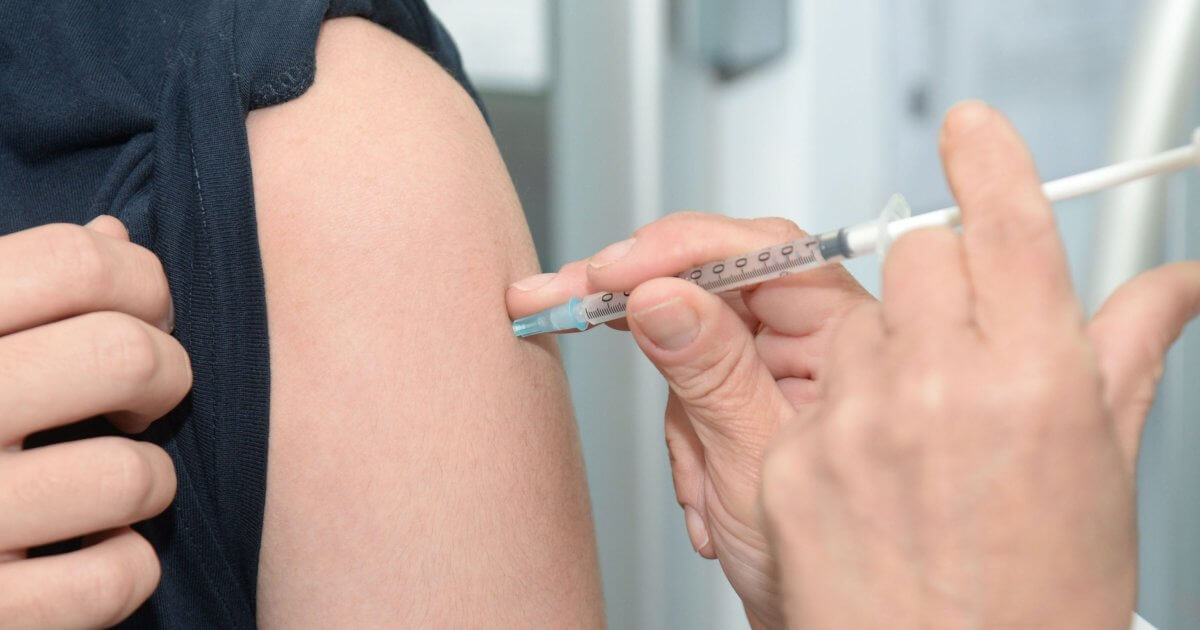Experts Say Don't Discriminate with Vaccines
- Many cancer patients are debating which vaccine is best for them, and leading experts are in agreement that they should take the first vaccine that is offered.
- Dr. Bob Keenan, Chief Medical Officer at Moffitt Cancer Center, explains the difference between the available vaccines.
- Dr. Keenan, who is also Moffitt’s VP of Quality and Safety says that vaccines really don’t make you sick. The perceived ‘sickness’ or common side effects experienced by some people like rashes or redness are actually just your body’s reaction to a vaccine.
The answer is simple.
Read More“We strongly believe from a cancer perspective that there are almost no cancer patients that we would say should turn down the vaccine,” Dr. Bob Keenan, Chief Medical Officer at Moffitt Cancer Center in Tampa, Fla., tells SurvivorNet.
“There may be times during their treatment when getting the vaccine is not the right move, but at some point, virtually all cancer patients, it would be reasonable to give them the vaccine and we would strongly encourage them to get the vaccine. And I think that’s a critical point.”
"The best COVID-19 vaccine to get is the first one available to you," says our Dr. Anita Ying: https://t.co/Guhney1jOM @anitayingMD #COVID19vaccine #EndCancer
MD Anderson Cancer Center (@MDAndersonNews) March 25, 2021
The Moderna and Pfizer vaccines require two doses, while the Johnson & Johnson shot is one dose. The J&J and Moderna vaccines are only approved for people 18 and over, while the Pfizer shots can be administered to anyone 16 and over.
What are the Differences Between Vaccines?
Many patients also want to know the difference between the vaccines.
“The Johnson & Johnson product is an attenuated virus meaning that it’s still a virus,” says Dr. Keenan. “Because that’s the standard way that most vaccines are given these days, right? Going all the way back to the polio vaccine. So anyone who’s been getting vaccinations for a variety of diseases over the years, has gotten a vaccine that has injected virus.”
No, not the coronavirus. The J&J vaccine uses adenovirus, a common cold virus that is able to enter cells when modified, but can’t make new virus particles.
There is no virus in the Pfizer and Moderna shots.
“There is no virus at all. It is messenger RNA which is a piece of genetic material,” he says. “And it’s a piece of a genetic material that codes for the protein on the little spike on the coronavirus. And they target different proteins. Each one of them targets a different protein. But they’re both targeting proteins on that spike.” The spike protein is found on the surface of the virus that causes COVID-19.
Related: 5 COVID-19 Vaccine Questions Answered by Expert Physician
“And so what happens is, the body’s immune system now creates antibodies that will react against that protein,” Dr. Keenan continues. “And then so if you do happen to then get a COVID infection, your antibodies are already primed against the protein to keep the virus from even being able to enter into a patient’s cells and replicate.”
Side Effects of the Vaccine
Pain/rash at the injection site, fatigue and headache have been the most commonly reported side effects.
“So just like with any vaccine, just the fact that you get an injection means that you could get some pain at the injection site,” Dr. Keenan says, speaking specifically on the Moderna and Pfizer vaccines. “Most of the time with vaccines, you will also get some type of body reaction. And it can be localized or it can be more systemic. So the more systemic things are headaches, chills, fever, those sorts of things that could last a few hours up to a couple of days.”
Related: Can You Get Chemotherapy for Cancer at Home? The New Push During COVID-19
In addition, you can get some more localized rash-like symptoms “which typically somebody would take say Benadryl to help make it go away.”
Very rarely, there is a reaction that can happen several days after: a raised, red area around the injection site. “And again, it’s just part of the body’s allergic reaction to it. And it usually goes away in a couple of days,” he says. “The uncommon things are what we would call the anaphylactic reactions and that’s when you get blood pressure problems. You get breathing problems, you feel your throat closing in. Those sorts of things. And that can be more serious.”
Related: I'm In Active Cancer Treatment Can I Get the COVID-19 Vaccine?
Although experts agree that most cancer patients should be getting the vaccine, depending on what type of cancer they have, or where they are in their treatment plan, most patients can survive if they getting infected.
“We do know that there are some types of cancer, for instance, lung cancers, just by the nature of the fact that lung cancers affect the lungs which is a big problem from a COVID infection standpoint. Lung cancer patients and the liquid tumor patients, leukemias, lymphomas, those are the two groups that we know can really struggle if they get a COVID infection,” he says. “Most other cancer patients can do just fine. And that’s what we have found as well is that the cancer patients that we have managed, they have done very, very well.”
As always, it is important to go over your medical history with your doctor before taking any vaccine or medication.
‘I Recommend All Cancer Patients Get the Vaccine When they are Offered One’
‘Don’t Put off Getting Screened Due to COVID-19’
Learn more about SurvivorNet's rigorous medical review process.


